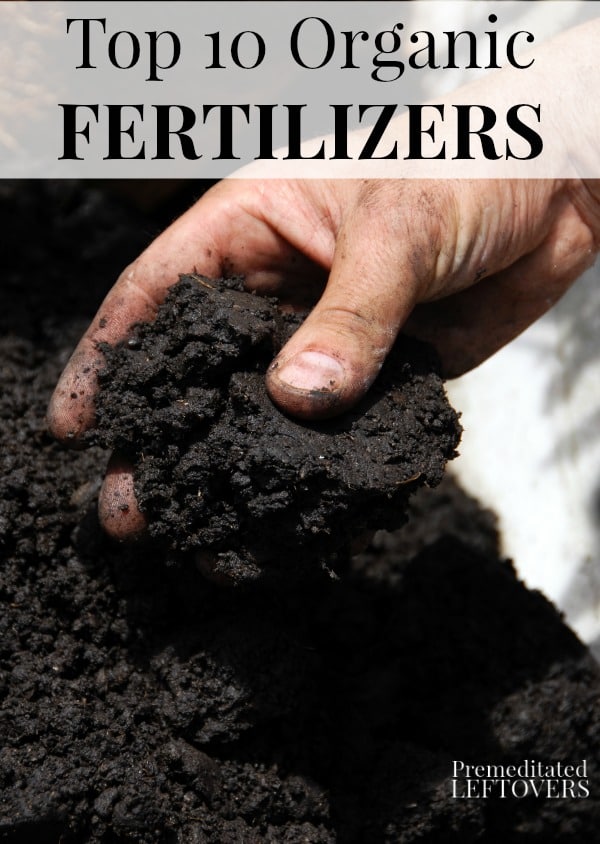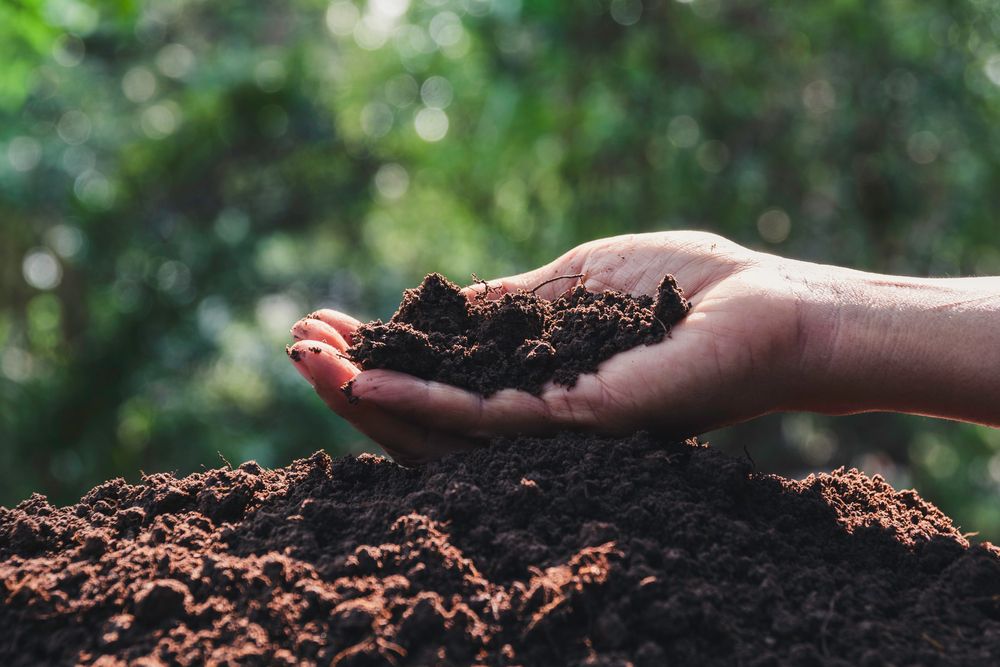Imagine nurturing your crops with the purest elements of nature, enhancing their growth, and boosting their productivity without a hint of synthetic chemicals. Sounds ideal, right?
Welcome to the world of natural fertilizers, where you can cultivate vibrant, organic crops that not only thrive but also nourish the soil for future harvests. In this guide, you’ll discover the top 10 natural fertilizers that promise to transform your farming experience.
Whether you’re a seasoned organic farmer or just starting out, these natural powerhouses will captivate your interest and elevate your crops to new heights. Ready to unlock the secrets to thriving, chemical-free plants? Let’s dive in!
Compost
Compost is often hailed as the champion of natural fertilizers for organic crops. It’s not just about piling up kitchen scraps and yard waste; it’s about creating a nutrient-rich powerhouse for your plants. If you’re looking to boost your soil health and crop yield naturally, compost should be at the top of your list.
What Is Compost?
Compost is decomposed organic matter that you can use to enrich your garden soil. It’s made from everyday waste like fruit peels, coffee grounds, and grass clippings. This mix breaks down into dark, crumbly material packed with nutrients.
Benefits Of Using Compost
Compost improves soil structure, helping your plants grow stronger roots. It retains moisture, reducing the need for frequent watering. Plus, it’s an eco-friendly way to recycle your kitchen and garden waste.
Creating Your Own Compost
Start a compost pile in a corner of your backyard. Layer green materials like vegetable scraps with brown materials like dried leaves. Turn the pile regularly to speed up the decomposition process.
Common Mistakes To Avoid
Don’t add meat, dairy, or greasy foods, as they can attract pests and slow down decomposition. Avoid using diseased plants as they can spread pathogens. Be patient; composting takes time but the results are worth the wait.
Using Compost In Your Garden
Spread a layer of compost on top of your soil before planting. Mix it well to ensure nutrients reach your plant roots. You can also use compost as mulch to protect plants and retain soil moisture.
Compost is not just a fertilizer; it’s a magic ingredient for your garden. Have you tried making your own compost yet? Share your experiences or tips in the comments below. Let’s make gardening greener together!

Animal Manure
Animal manure enriches soil naturally, boosting plant growth. It provides essential nutrients for healthy organic crops. This fertilizer improves soil texture and fertility, enhancing crop yield sustainably.
Animal manure is a classic choice for natural fertilization. It’s rich in nutrients, making it ideal for organic crops. This fertilizer improves soil structure and boosts microbial activity. Farmers have used it for centuries to enhance crop yield. Understanding the benefits of different animal manures helps in choosing the right one for your garden.What Is Animal Manure?
Animal manure consists of animal feces and bedding materials. It provides essential nutrients like nitrogen, phosphorus, and potassium. These nutrients support plant growth and improve soil health. Manure also helps retain soil moisture, reducing the need for frequent watering.Benefits Of Using Animal Manure
Animal manure enriches the soil with organic matter. This increases soil fertility and encourages healthy plant growth. It also promotes beneficial soil organisms, improving nutrient availability. Manure releases nutrients slowly, providing a steady supply for plants.Types Of Animal Manure
There are several types of animal manure available. Each type offers different nutrient levels and benefits. Common types include cow, horse, chicken, and sheep manure. Each type suits different plants and soil conditions.Cow Manure
Cow manure is popular for its balanced nutrient content. It’s gentle on plants and improves soil texture. Cow manure is ideal for vegetable gardens and flower beds. It also helps reduce soil compaction.Horse Manure
Horse manure is rich in nitrogen and great for fast-growing plants. It breaks down quickly, making it effective for composting. Horse manure adds bulk to soil, improving drainage and aeration.Chicken Manure
Chicken manure is high in nitrogen, phosphorus, and potassium. It’s excellent for leafy greens and fruiting plants. This manure must be composted before use due to its strength. Composting reduces the risk of burning plants.Sheep Manure
Sheep manure is a rich source of nutrients. It’s less smelly and easy to handle. Sheep manure is ideal for enriching flower and vegetable gardens. It also improves soil structure and water retention.How To Apply Animal Manure
Always compost fresh manure before applying it to crops. Composting reduces pathogens and makes nutrients more available. Apply manure in the fall, allowing it to break down over winter. Spread it evenly and work it into the soil for best results.Green Manure
Green manure is a vital addition to organic farming. It enriches the soil with nutrients and boosts crop growth naturally. It involves growing specific plants and plowing them back into the soil. This process enhances soil fertility, structure, and moisture retention.
Green manure plants are usually legumes. They fix nitrogen from the air into the soil. This natural fertilization method reduces the need for chemical fertilizers. It also supports sustainable agriculture practices.
What Is Green Manure?
Green manure refers to cover crops grown primarily to benefit the soil. Farmers choose specific plants, like clover and alfalfa, for their ability to improve soil quality. These plants are grown for a period and then incorporated into the soil. This process adds organic matter and nutrients.
Benefits Of Using Green Manure
Green manure improves soil structure by adding organic matter. It enhances water retention and aeration. This helps roots grow more effectively. It also suppresses weeds by covering the soil surface. This reduces the need for herbicides.
How Green Manure Works
Plants used in green manure absorb nutrients while growing. Once plowed into the soil, they decompose. This releases nutrients back into the soil. The decomposition process also attracts beneficial microorganisms. These microbes aid in breaking down organic matter further.
Choosing The Right Plants
Selecting suitable plants is essential. Legumes, such as peas and beans, are popular choices. They fix atmospheric nitrogen, enriching the soil. Non-legume plants like rye and buckwheat add biomass and suppress weeds effectively.
Timing And Techniques For Application
Timing is crucial for green manure application. Plant cover crops in the off-season to maximize benefits. Before main crops, plow them under. This ensures optimal nutrient release and soil preparation.
Environmental Impact
Green manure promotes eco-friendly farming. It reduces chemical fertilizer use, minimizing water pollution. It also supports biodiversity by providing habitats for beneficial insects.
Challenges With Green Manure
Some challenges exist with green manure. It requires additional planning and management. It might not be suitable for all climates or soil types. Farmers need to select the right plants and timing for their specific conditions.

Bone Meal
Bone meal enriches soil with essential nutrients, making it a popular choice for organic farming. Rich in phosphorus, it enhances root growth and strengthens plants naturally. This organic fertilizer supports healthier crop yields without synthetic chemicals.
When you’re striving to grow organic crops, using natural fertilizers can make all the difference. One powerful option is bone meal. Derived from crushed animal bones, bone meal is rich in phosphorus and calcium. It’s a go-to for gardeners who want to boost root growth and enhance flowering. Have you ever considered how something as simple as bone meal can transform your garden’s productivity?What Is Bone Meal?
Bone meal is a powdery substance made from steamed animal bones. It’s packed with essential nutrients like phosphorus, which is crucial for plant energy transfer and photosynthesis. Many gardeners swear by it for its ability to improve root development and boost flowering.Benefits Of Using Bone Meal
Bone meal offers a slow-release formula, providing nutrients over time. This means your plants get a steady diet, supporting long-term growth and health. It’s especially beneficial for flowering plants, helping them produce vibrant blooms and strong roots.How To Apply Bone Meal
Sprinkle bone meal directly into the soil at the planting time. Ensure it’s mixed well to reach the roots. Use about one tablespoon per two square feet for best results. Always follow package instructions to avoid over-fertilizing.Bone Meal For Different Crops
Bone meal is versatile and works well with a variety of crops. It’s ideal for root vegetables like carrots and turnips, as well as flowering plants like roses and tomatoes. Tailor the application to your specific crops for optimal results.Precautions When Using Bone Meal
While bone meal is safe, it’s essential to handle it carefully. Wear gloves to avoid skin contact, and keep it away from pets as they might find it enticing. Always store it in a secure, dry place to maintain its effectiveness.Personal Experience With Bone Meal
I once struggled with lackluster tomato plants that refused to bloom. After adding bone meal to the soil, the transformation was astounding. The plants thrived, producing juicy tomatoes that were the talk of the neighborhood. Using natural fertilizers like bone meal can significantly impact your organic gardening success. What changes have you noticed in your garden after switching to natural fertilizers?
Conclusion
Natural fertilizers offer great benefits for organic crops. They enrich the soil naturally. Boost plant growth without chemicals. Each option in our list is effective. Easy to use and safe for the environment. Choosing natural fertilizers supports healthy farming. It helps sustain the earth for future generations.
Your crops will thrive with these options. Healthier plants mean better yields. Try one or more from our top ten list. Experience the difference in your organic farming. Embrace nature’s way for a fruitful harvest. Your plants, soil, and planet will thank you.



